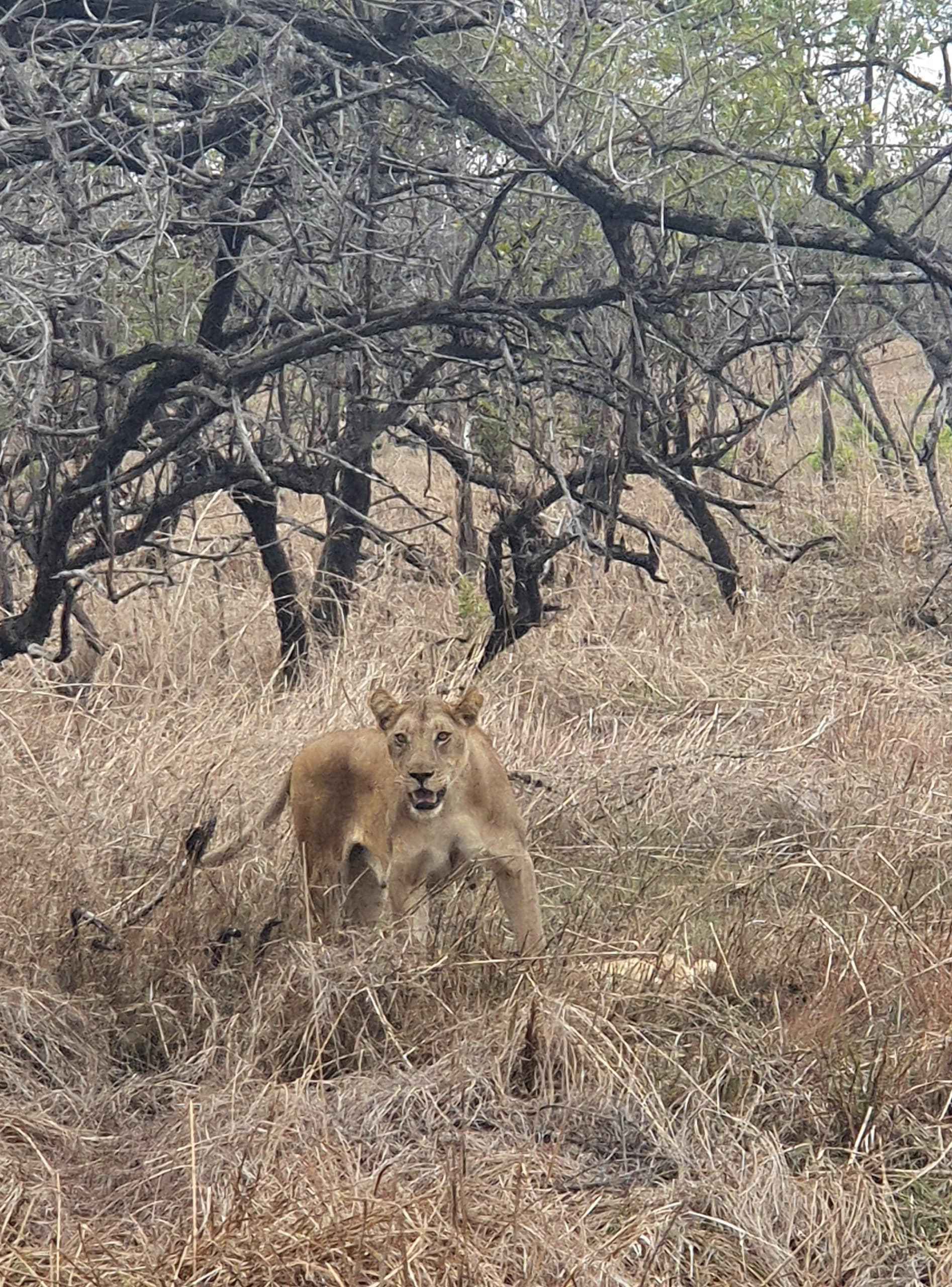
Witnessing Grief in the Wild: Lioness Mourns Lost Cub in Stunning Display at Mikumi
When a lioness loses her cubs, she often displays profound signs of grief, showing that even wild animals experience deep, emotional reactions to loss. Lions, especially mothers, form strong bonds with their young. Lionesses invest a great deal of time, energy, and care into raising their cubs, teaching them how to hunt, communicate, and navigate their environment. This connection makes the loss of a cub particularly devastating for her. In the wild, cubs may die for various reasons—predation, illness, starvation, or even accidental trampling by larger animals. Unfortunately, the landscapes of national parks and reserves are not immune to these heartbreaking realities.
A notable example of this behavior was recently observed in Mikumi National Park by the Safari56 Tours team. They witnessed a lioness carrying her deceased cub, a heart-wrenching scene that underscored the deep maternal bond these animals share. The lioness held her cub in her mouth, gently carrying it as if it were still alive, a behavior that might be her way of processing the loss. In some cases, lionesses may carry their dead cubs for hours, even days, before finally abandoning them. This act, though sorrowful, speaks volumes about the lioness's attachment and the depth of her loss.
The Safari56 team noted that the lioness seemed visibly distressed, exhibiting low body posture, moving slowly, and frequently stopping, as though reluctant to let go. The team could see that, despite the heartache, the lioness needed to continue her journey to survive and protect the pride, but her mourning was palpable. Such behavior mirrors that seen in other animals, like elephants and primates, who also display signs of mourning and may linger near the deceased members of their family.
Environmental factors in national parks sometimes exacerbate these situations. The natural hazards, competition, and food scarcity can lead to high cub mortality. Mikumi, a stunning yet wild expanse, has both prey and predator species competing for survival. Cubs are particularly vulnerable to lions from rival prides, hyenas, and even snakes. Harsh weather conditions can also bring disease, and in times of drought, malnutrition can take a toll on the youngest pride members.
This painful experience in Mikumi National Park provides a sobering reminder of the wild's raw realities. While parks strive to preserve wildlife and provide a safe environment for animal populations, nature's cycle continues, with both joyous and tragic moments. Safari56 Tours and similar organizations witness these complex, emotional scenes in real-time, offering a unique, often bittersweet, insight into the lives of these majestic creatures.
#WildlifeGrief #LionessLove #AnimalEmotions #NatureHeartbreak #RawNature #WildlifeMoments
#SafariExperience #MikumiNationalPark
#NatureGrief #LionPride #EmotionalWildlife
#HeartOfTheWild #WildlifeEncounters #MotherNature #AfricanSafari #LifeInTheWild
#AnimalBond #LionessStrong #MotherhoodInTheWild#Safari56



